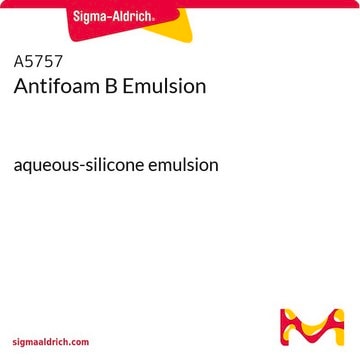A8678
Agar
suitable for plant cell culture
Synonym(s):
Agar-agar, Gum agar
About This Item
Recommended Products
biological source
algae (Rhodophyceae)
Quality Level
form
powder
technique(s)
cell culture | plant: suitable
mp
80-90 °C (1.5% in water)
transition temp
transition temp 27-37 °C (1.5%)
application(s)
agriculture
storage temp.
room temp
InChI
1S/C14H24O9/c1-5-8(16)13-11(7(21-5)4-20-13)23-14-10(18)12(19-2)9(17)6(3-15)22-14/h5-18H,3-4H2,1-2H3/t5?,6-,7?,8-,9+,10-,11?,12+,13+,14?/m1/s1
InChI key
GYYDPBCUIJTIBM-DYOGSRDZSA-N
Looking for similar products? Visit Product Comparison Guide
General description
Application
- as a supplement (0.9% w/v) to Murashige and Skoog basal medium for plant growth
- in the preparation of cocultivation medium for Agrobacterium tumefaciens mediated transformation in maize (Zea mays) hybrid Hi-II
- as a component in the complete medium to regenerate protoplasts of Piriformospora indica
- as a clean agar medium to culture Synechococcus WH7803 strain
Biochem/physiol Actions
Preparation Note
Storage Class Code
11 - Combustible Solids
WGK
WGK 1
Personal Protective Equipment
Certificates of Analysis (COA)
Search for Certificates of Analysis (COA) by entering the products Lot/Batch Number. Lot and Batch Numbers can be found on a product’s label following the words ‘Lot’ or ‘Batch’.
Already Own This Product?
Find documentation for the products that you have recently purchased in the Document Library.
Customers Also Viewed
Our team of scientists has experience in all areas of research including Life Science, Material Science, Chemical Synthesis, Chromatography, Analytical and many others.
Contact Technical Service








